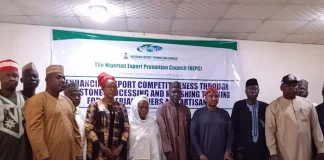The Executive Vice-Chairman (EVC) of the Nigerian Communications Commission (NCC), Prof. Umar Danbatta, says that 35 million Nigerians are yet to access digital financial and telecommunications services.
He said this at the 2022 World Consumer Rights Day, celebrated on Tuesday in Abuja. Danbatta said, “As many as 35 million Nigerians are yet to have access to telecommunications services, and by implication, they lack access to digital financial services.
“This situation denies these Nigerians access to digital financial inclusion. It is a challenge that is attributable to the inadequacy of both wireless and fibre connectivity infrastructure.”
Earlier in February 2020, the EVC had started that 35 million Nigerians lacked access to digital financial and telecommunications services. This may then mean that the NCC has failed to fill this gap after two years.
However, the EVC further noted that the launch of the Nigerian National Broadband Plan 2020-2025 is critical in addressing existing issues and filling up relevant gaps.
Danbatta said, “The launch of the Nigerian National Broadband Plan 2020-2025 attests to the fact that Nigeria is poised to join the comity of nations and become a global leader in transforming its economy into a digital one.
“The broadband plan is designed to deliver 120,000km of fiber, 70 percent penetration, data download speeds across Nigeria of a minimum of 25mbps in urban areas, and 10mbps in rural areas, with effective coverage available to at least 90 percent of the population at a price not more than N390 per 1GB of data (i.e., two percent of median income or one percent of minimum wage) by end of 2025.”
He further stressed the need for increased investments in fixed and wireless infrastructure to boost financial inclusion.
“We are therefore conscious of the urgency of increasing investment in both fixed and wireless infrastructure. This will make the target of at least an 80 percent level of financial inclusion in about four years possible.
“The commission has thus licensed the infrastructure companies (Infracos), which are to provide the fiber from landing ports to the hinterland of the Country. A key focus in this regard is to provide broadband connectivity, especially in the 774 local government areas in the Country.
“There would be further actions to enable Infracos to commence operations as the Commission recognizes that fibre is the long-term solution to the volume of transactions in the financial services sector,” he said.













